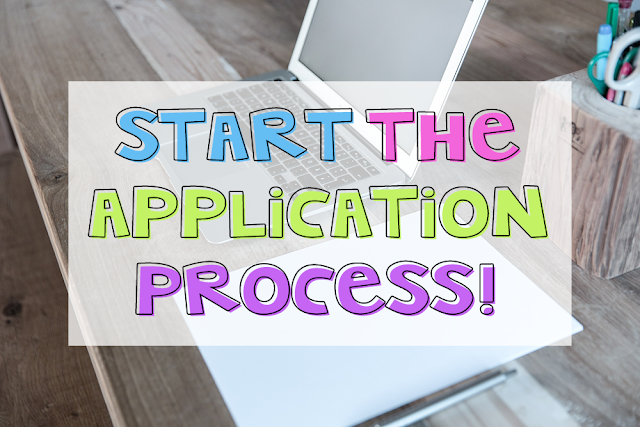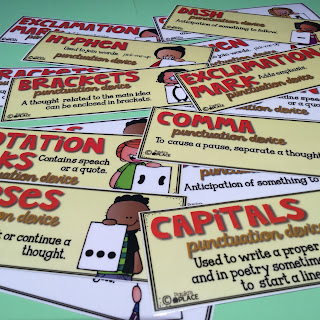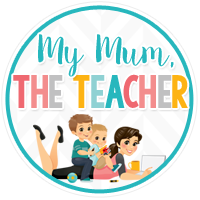Hi Everyone! It's Christie from My Mum, the Teacher writing our Christmas blog post for 2016!
Teaching is now recognised as one the most stressful jobs one can do. According to Sir Cary Cooper, it is consistently in the top three most stressful professions - "the hours are long and antisocial, the workload is heavy and there is change for change’s sake from various governments". So don't feel bad when people carry on about teachers getting soooooooo many holidays each year. We are given these for a reason - that being to rest, regenerate and re-cooperate!
Studies have been conducted, and the results are in - to avoid critical burnout and exhaustion, you need to actually use your holidays as a time to break away from work. The holidays are a time to restore physical, emotional and mental energy. Allowing yourself to step away from work altogether means that you improve your mental health and will recover faster from the demands of work when you do return, as you will have a clearer and stronger mind.
So... HOW can you relax during the holidays? HOW can you escape the work load that has been with your all year? Well here are 10 ways that we feel you can switch off:
1. SLEEP: Turn off the alarm, install blackout curtains and inform your family and friends you will not be available until after 10am! Now, all jokes aside, seriously turn off the alarm and enjoy some lazy morning lie-ins. If you're like me and you are still up at the same time every day, then get up, grab a book, read it in bed and you'll likely find you'll doze off after an hour or so. BUT, if you're also like me and have little people demanding your attention at the crack of dawn, remind them it's holidays - enjoy some pyjama couch time watching morning cartoons, make a cooked breakfast, read some books together. Unless you've booked something in, what's the rush?
2. MAKE A LIST: Say what? Why? Well, as teacher's we're generally souls who like order and the knowledge of what's coming up next. So, make a list of the things you want to get done in the holiday break. It might be odd jobs around the house, baking with the kids, having regular massages, going to pilates, walking the dogs everyday, getting to the gym, meeting friends, organising the photos on your phone/computer etc. Whatever it is, work your way through the list.
3. ODD JOB TIME: All those things around the home that you didn't get to throughout the year - well now's your chance! Take the time to work on your home - your personal space, or the place you share with your loved ones. Do those little odd jobs like clearing out the linen cupboard, cleaning the windows, planting that veggie garden you've been talking about since winter!
4. DON'T LOOK AT YOUR EMAILS: It's tough, I know... but once you do it, you'll wonder why you never did before. I'm not saying to wait until the day before you return to check them, but maybe switch them off for 3 of the 5 weeks. Spend our time with family and friends playing games, baking, reading books, soaking in the summer sun! You'll feel refreshed and ready to tackle anything after a few weeks...
5. MAKE TIME FOR YOURSELF: It's not a crime to be selfish - teachers are some of the least selfish beings on earth! We are forever giving of our time to our students, their families, our colleagues... this is the time when you can focus on yourself. You might to just lay on the couch or beach for the next 5 weeks, and be totally antisocial - not advisable, but if that's what you need, then do it! I love soaking in a bath, or going for a long walk with my dogs... whatever makes YOU happy, do it!
6. PAMPER YOURSELF: This links in with making time for yourself - personally, I love getting a massage, a mani-pedi, facial - anything that involves someone pampering me! Ask family and friends for a voucher to your favourite day spa, or local beautician. Maybe you want to indulge in some good food... wine... music... all of the above! Again, whatever makes you feel happy, do it!
7. MAKE DATES WITH FRIENDS AND FAMILY: Reconnect with the people you love... Give them the time and attention you aren't able to during term. It's important to maintain good, strong relationships, especially when times are good, so that you have the right people around you in the not-so-good times.
8. GET ACTIVE: Start walking every day, or make more time to get to the gym or your local Yoga or Pilates group - whatever it is that you do that reduces your stress, clears your head and aids in relaxation, find time for it in your days.
9. PRACTICE MINDFULNESS: We often work with our students on this, and teach them that the importance of being in the moment - but we need to practice what we preach. Our mental health is just as, if not the most important thing to work on during the holiday break. However you take time to just be in the moment, whether its through meditation, walking and connecting with nature...
10. HOLIDAY AWAY FROM HOME: If you can manage it, even a little long weekend away is better than nothing, and encourages you to be in the moment, remove yourself from the clutches of the workplace and enjoy the world and people around you.
From all of the Australian Teachers Blog team, we would like to wish our readers and fellow educators a very safe, happy and restful Christmas and New Year period!





































































